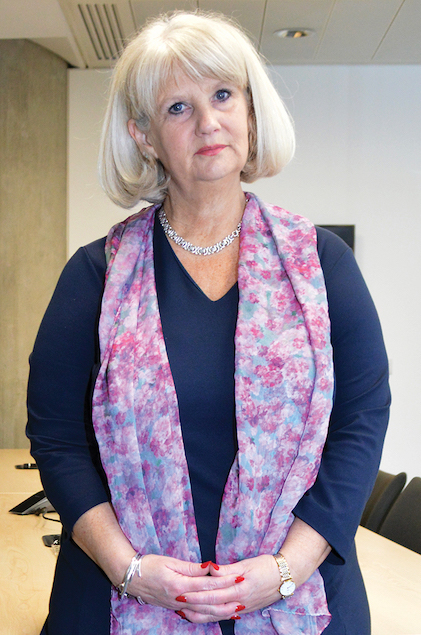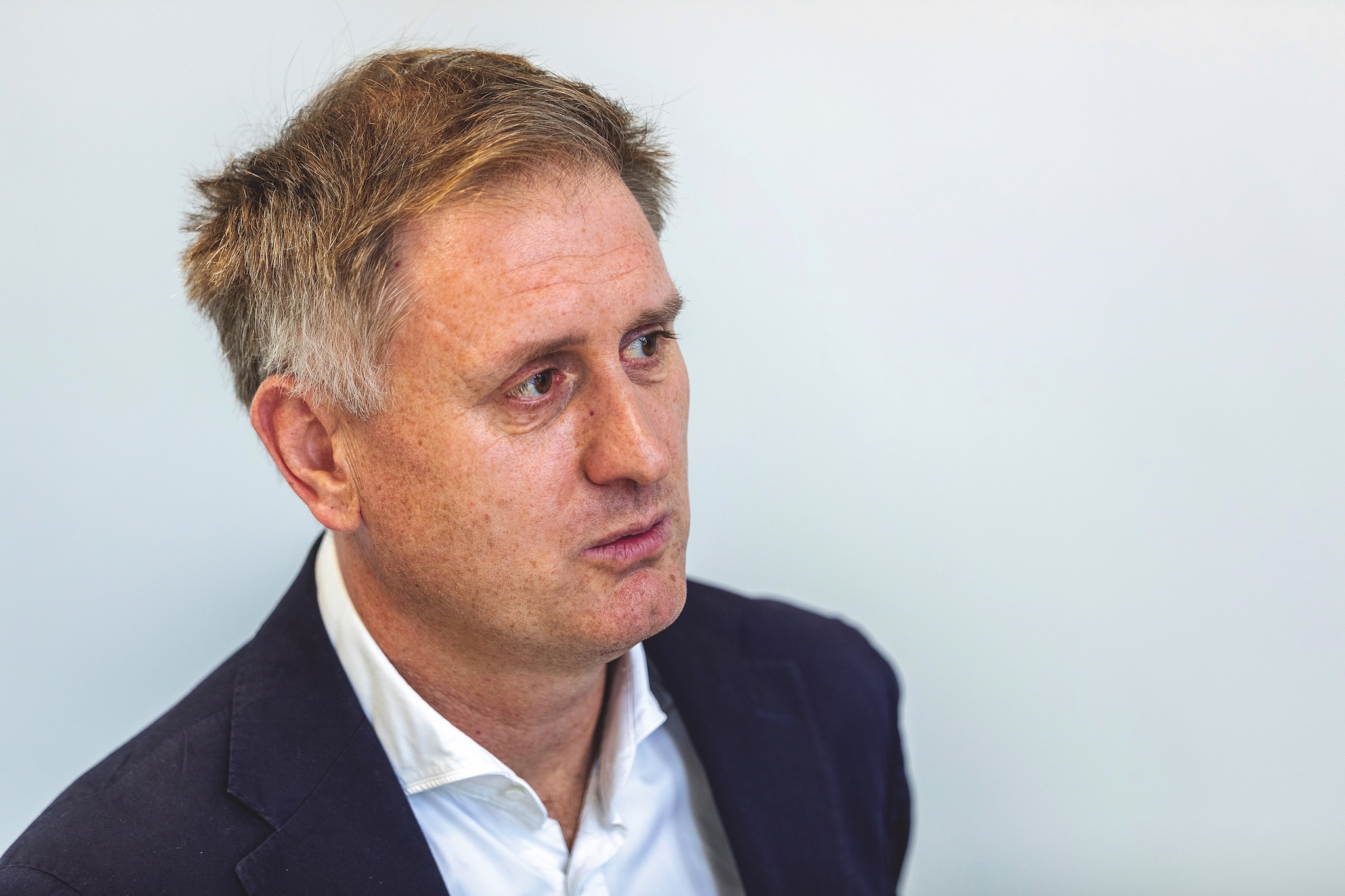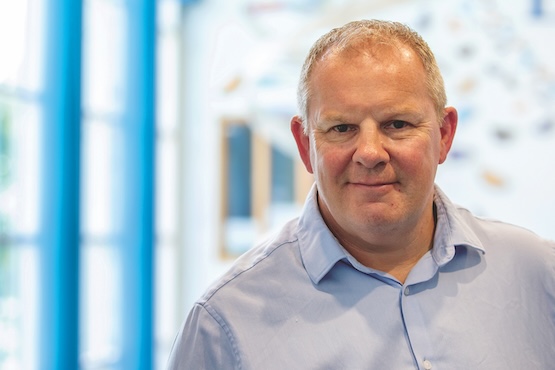Claire Murdoch: ‘I wanted to make a difference’
As both chief exec of a big trust and mental health chief at NHS England, Claire Murdoch is one of the most influential figures in today’s NHS. She talks to MiP about managing through the pandemic, the “everyday courage” of staff and the future for mental health jobs.

“I was a highly unsuitable candidate in some ways,” says Claire Murdoch, recalling the day in 1983 when she arrived at Friern Barnet psychiatric hospital for an interview for a job as a trainee mental health nurse. “I didn’t know anyone else who was a mental health nurse. I knew nothing about psychiatry or mental illness,” she continues. In her early twenties, she’d been “drifting around doing bits and pieces”—and then a recruitment ad in a women’s mag caught her attention.
Curious, “I went to a local mental health unit in Hackney, spent a couple of days there finding out about it, and fell hook, line and sinker,” she recalls. But when she went for interview, the experience listed in her job application was mostly chambermaiding, amateur dramatics and dancing: the panel “looked at my somewhat flaky CV, and I’ll never forget them looking at me saying, ‘Nursing isn’t a glamorous job, you know?’”
Happily, the panel made the right decision—and today, Murdoch is both the chief executive of Central and North West London NHS Foundation Trust (CNWL), and the national mental health director of NHS England. Joining the community and mental health services trust 20 years ago as chief nurse and chief operating officer, she’s now been chief exec for 14 years: “I love the organisation, and it’s never stood still,” she comments. “We’ve had opportunities for competition and growth; now we’ve got opportunities for collaboration. The 20 years has gone in the blink of an eye.”
On the ground
Working in two senior jobs brings its challenges: “You can only do a split role if you have two fantastic teams—and I do,” she says. But she believes there’s real value in giving the NHS England job to a serving trust leader: she “can’t be in any doubt about reality because I spend a lot of my time walking the patch—meeting patients and staff, hearing about concerns, watching how the money is flowing, and looking at delivery.” It’s a huge privilege to “take funding, opportunity and influence, and turn it into reality on the ground,” she adds. “What I wanted to do at 23 was make a difference. And I feel I have the opportunity to do that.”
The last year, though, has felt like a long road, as community and mental health teams have grappled with an entirely new and unique set of challenges. “We had to learn how to deliver care safely—and particularly at the crisis end of mental health work, we were often admitting people to hospital who hadn’t been self-isolating before they came in; who perhaps couldn’t wear masks or look after themselves well; who weren’t lying neatly in beds, as in the acute sector: our patients are highly mobile,” says Murdoch. “Staff had to use the most extraordinary sets of skills to reassure those individuals, and also to keep all the other patients on the wards safe. And I think that was hard.”
When the pandemic struck, the trust’s first priorities included distributing PPE. “Because of the nature of our work, we’re dispersed over dozens of sites, so we had to get the right PPE packed up and sent out,” explains Murdoch. “We turned our boardroom into a PPE warehouse!” Equally important was introducing remote working tools: “We’d had this dream of delivering more care remotely, being able to work remotely,” she recalls. “Now we think nothing of having 500 people on a Zoom call!”
Meanwhile, Murdoch worked with NHS England to accelerate an existing plan for all England’s mental health trusts to set up 24/7 crisis lines by 2023. A year ago, a stocktake found that only half of them had either children’s or adults’ crisis lines in place; now, all of them serve both age ranges. “There are lots of examples like that, where mental health services—by hook or by crook—just kept seeing patients, kept looking endlessly at ways they could reach people,” she says with evident pride.
In that intense, perilous and shocking first wave of the virus, Murdoch says, NHS staff displayed incredible “everyday courage”. She vividly remembers travelling London’s empty streets to visit trust sites: “Most people were doing as they’d been asked and staying at home, and our people were getting on the buses, on the tubes, and coming into work. And lots was unknown about covid and how it was transmitted. They never would have described it as courage, but I thought it was.”
Without close, long-standing relationships between trust managers, clinicians and staff, it would have been much more difficult to respond to the crisis. “Over the years, I think we’ve developed a very strong cadre of managers and clinicians at every level in the organisation,” she says. “I’ve always insisted that we don’t resort to the ‘clinical people are angels; management are the people with clipboards and stopwatches’ [attitude]. We’re all about delivering patient care.” Teams such as communications and ICT, she emphasises, have played an essential role in supporting staff, treating patients and protecting the public.
Do it together
Similarly, the executive team’s relationship with trade unions proved invaluable. “Maybe because lots of us managers have been here for a long time, we [and the staff side] know and trust and respect each other,” she says. “Experience teaches you: if you’ve got something difficult to do, do it together. We had very frequent meetings with our union colleagues about all kinds of issues, and they really stepped up and helped guide some of our decisions and actions.”
Union colleagues helped, for example, to boost take-up of the flu jab in early 2020, minimising avoidable sick leave during the pandemic. As a result, says Murdoch, the trust hit its 90% target for flu vaccinations—“and I never thought we’d achieve 90% in a trust like ours: very ethnically diverse, very geographically spread.” The figure, she says, indicates a high level of trust in management, “and your staff side colleagues definitely help you create that. There’s no ‘them and us’, just an ‘us’—and we desperately needed that through the pandemic!”
Those relationships have proved just as important in maximising staff take-up of covid vaccines, which also stands at around 90%. “We know that some staff are worried or hesitant,” she comments. “But we also know that if you can have a direct conversation with somebody, understand why [they’re worried] and give them reassurance, the chances are that you can encourage them to have that life-saving jab. So we’re not going to give up on anyone!”
The trust is adopting the same principles in its public vaccination programme—reaching out through local faith groups, charities and service providers to engage with every culture and community. “We’ll run pop-up clinics on the street, if that’s what it takes, or in the chapel or the school or the Hindu temple,” says Murdoch. “You name it, we’ll go there. And you can’t do that alone: you have to do it with your local authority colleagues, your primary care colleagues.”
Massive pressure
Asked how staff have fared through the pandemic, Murdoch emphasises that “life has happened to NHS colleagues, just as it has to wider society.” Staff have “had to do home-schooling. They’ve had parents in care homes they’ve been unable to visit; they’ve perhaps had covid themselves.” Mental health work, she adds, “is emotional labour: you’re giving of yourself to work with people at some of the really low points of their lives.” And these acute work pressures arrived “when some of our staff were already feeling they might be running a bit on empty, emotionally.”
As a result, “we are seeing people coming forward with real anxiety… lots of sleep problems, diet problems, problems with stress, worries about finances, and some worried about [catching] covid at work.” Working through NHS England, Murdoch has overseen the launch of “resilience or wellbeing hubs that we’ve set up for staff everywhere”: these provide a range of services, from online self-help materials to treatment for severe mental health problems.
And how has public need changed through the pandemic? When the virus arrived, “we saw a drop-off in people coming forward for mental health services,” says Murdoch: during national crises, people tend to focus on practical challenges and “put their health down the pecking order”. But referral rates returned to pre-pandemic levels through the summer—with a steep rise among young people. “We’ve seen a doubling in referrals for eating disorder services,” she notes. “There’s massive pressure on children and young people’s services.”
Murdoch anticipates a rise in the prevalence of anxiety and depression, and expects the lingering, debilitating effects of ‘long covid’ to damage some patients’ mental health. “We don’t want to medicalise and pathologise all distress,” she says, noting that the gradual return of people’s schools, workplaces and social lives will alleviate some of these problems. But the tough economic times ahead are likely to present another challenge: rates of depression and suicide typically rise during economic downturns, she comments. “It’s not inevitable, but we all have a role in prevention.”
Absolutely corking jobs
Even before the pandemic, the NHS was set to invest an extra £2.3bn annually in mental health services by 2023: that’s enough to see two million more patients per year, says Murdoch, praising NHS chief executive Simon Stevens’s crucial role in “putting mental health on its proper platform.” And there is an urgent need for more capacity, particularly in services for the young: “Although we’re seeing more children and young people in the NHS than ever before, it’s still not as many as are coming forward.” That in turn requires rapid recruitment and training: “You need staff to power that plan,” she says. “One of my big messages would be that we’ve got some absolutely corking jobs”.
During the pandemic, the public has seen both that these jobs are immensely valuable and worthwhile—and that they can be extremely difficult and demanding. How does Murdoch think the NHS’s centre stage role in the pandemic will affect recruitment? “I personally think there will be an NHS bounce,” she replies, pointing to the number of people who’ve got involved as volunteers: in a CNWL “check in and chat” service, for example, volunteers have been providing patients with support on the phone.
Many of these volunteers “might have got the bug”, she adds. “We talk very often about how tough it is working in the NHS—and it certainly can be: this past year, I’m in awe of what everybody’s achieved. But it also can be rewarding like nothing else.”
“That’s not to say I don’t have bad days—there’s not a job in the world where you don’t. But I don’t have many, and the next day always looks better because I’m working with these phenomenal people,” she adds. “Across the sector as a whole—mental health nurses, admin staff, porters, cleaners, consultants, therapists—everybody stepped up. They were incredible.”
“I’m proud of what we achieved, but not complacent,” she concludes. “Because there’s still so much more to do. There was a pre-existing treatment gap that we were trying to close. And of course, we know that yet more demand is coming down the line as a result of covid. So the pressure’s on.”
Related News
-

“Showing kindness and trust creates a virtuous circle – people respond well to that”
As chief executive of Suffolk and North East Essex, one of England’s most highly rated integrated care boards, Ed Garratt has pioneered a radically different approach to leadership – one based around kindness, trust and putting down deep roots in local communities. He talks to Healthcare Manager’s Matt Ross.
-

We need to give managers reasons to join the profession — not risks to avoid
Steve McManus’s work developing the leaders and managers the NHS needs for the 21st century has caught the eye of national leaders. The Royal Berkshire trust chief executive talks to Matt Ross about transforming services, developing leaders and the right way to regulate the management profession.
-

Interview: Dr Phil Hammond, doctor, comedian, health campaigner
Doctor, comedian, broadcaster, writer, health campaigner and politician manqué, Dr Phil Hammond is now drawing up a manifesto to rescue the NHS and boost the nation’s health. On the eve of a watershed general election for the UK, he spoke to Healthcare Manager’s Matt Ross.